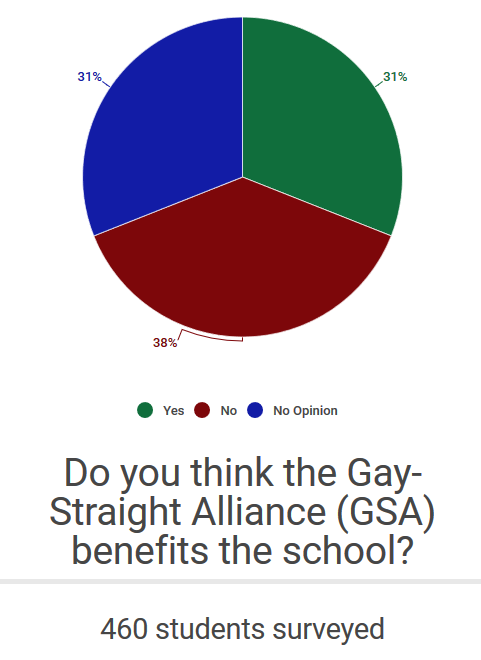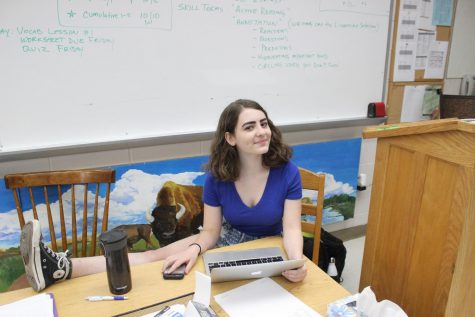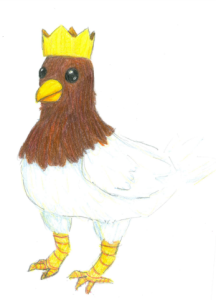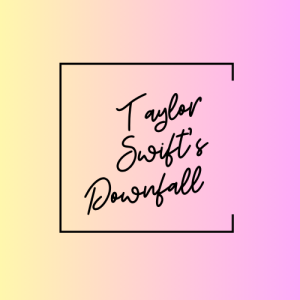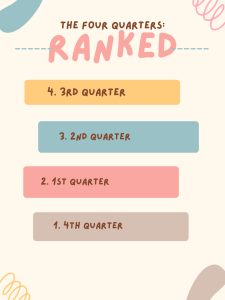GSA Lacks School Respect
October 20, 2017
RCHS boasts a large number of clubs and extracurriculars, which benefit the students that participate in them. However, not all clubs are respected equally. The RCHS Gay-Straight Alliance (GSA), also known as the Diversity Club, is undervalued and is met with more hostility and resistance than other clubs.
“People rip down our posters when we put them up about Ally Week,” said senior and GSA president, Claire Moreschi. “One of our members put up a poster and then not 30 seconds later, literally watched someone rip it down and people started stepping on it. And then there are students who just flat-out refuse to come to school during Ally Week. And then my freshman and sophomore years, there were a couple students who were particularly bad about firing back. One guy suggested they make a straight pride club.”
Ally Week is the first week of October during which the GSA puts up posters and celebrates the LGBT community and its struggles. It has been met with a large amount of opposition.
“Over the past couple years, the resistance has been trying to limit how public the things are that we were doing,” said GSA sponsor Patrick Bradley. “I would say it’s been more, not outright hostility, trying to tell us we can’t do it, but trying to keep it as quiet as possible to avoid controversy.”
Students have vastly different opinions on the subject, ranging from support to varying levels of discomfort about discussing LGBT related topics.
“If you’re LGBTQ, that’s absolutely fine. I don’t think that it should be as publicly announced, though,” said senior Yelena Billias. “I think that sexuality is something that, it pertains to every single person, and I think that it’s a very private thing, that it shouldn’t really involve other people.”
About 48 percent of the student body agrees with Billias and believes that Ally Week is beneficial for the school. 38 percent feels that the GSA club in general does not help RCHS. On the other hand, 31 percent thinks that the GSA’s work benefits the school. 41 percent of the students think that the school is not accepting of students’ different sexual orientations.
The best way to combat homophobia in schools is to accept and support LGBT students and teach the whole student body about how being LGBT is normal, and how the community is discriminated against. Discrimination at school mainly comes in the form of offensive slurs shouted at LGBT students and couples, particularly at male students.
According to the Washington Post, studies have shown that men who conform to the traditionally “masculine” norms of society are more likely to suffer from psychological problems and are less likely to seek help. They also usually have a disdain for anything that is or could be considered gay and desire power over women. A National Institutes of Health study said that the main masculine ideals are that men should be successful, career-driven, and that they should restrict showing their feelings and restrict affectionate behavior with other men. Because of this, many gay men have symptoms of psychological disorders and feel pressure to break away from the “effeminate gay men stereotype.”
A possible reason female couples do not receive the same harsh treatment as male couples is that intense masculinity has extreme social norms that do not include men expressing affection, whereas affection between females is more acceptable. This is because women are allowed and expected to be more expressive with their emotions, which includes love and affection. Men are taught to be strong and not to show any emotion or affection.
“We need LGBT pride because LGBT people, still in a lot of different parts of the world, are living in the shadows and they need to be able to come out and show people that we’re not afraid to be who we are, and straight people get that everyday,” said Moreschi.
The GSA strives to create a safe space for LGBT students and educate people who are willing to learn about the history of the community. Meetings are every Wednesday morning at 7:50 a.m. in room 207.

